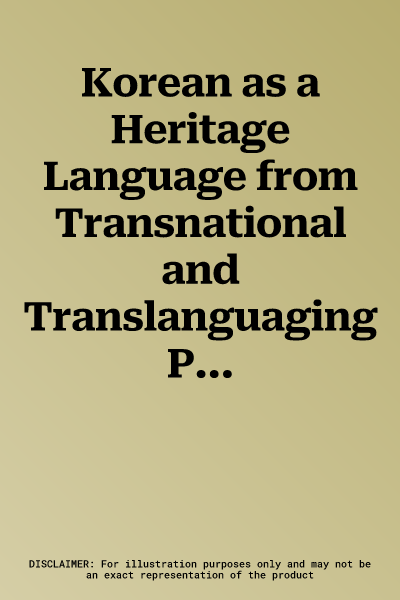Korean as a Heritage Language from Transnational and Translanguaging PerspectivesHardcover, 14 December 2022

Qty
1
Turbo
Ships in 2 - 3 days
Only 1 left
Free Delivery
Cash on Delivery
15 Days
Free Returns
Secure Checkout

Part of Series
Routledge Studies in Applied Linguistics
Print Length
238 pages
Language
English
Publisher
Routledge
Date Published
14 Dec 2022
ISBN-10
1032129727
ISBN-13
9781032129723
Description
Product Details
Book Format:
Hardcover
Country of Origin:
US
Date Published:
14 December 2022
Dimensions:
22.86 x
15.24 x
1.6 cm
ISBN-10:
1032129727
ISBN-13:
9781032129723
Language:
English
Location:
Oxford
Pages:
238
Publisher:
Weight:
508.02 gm